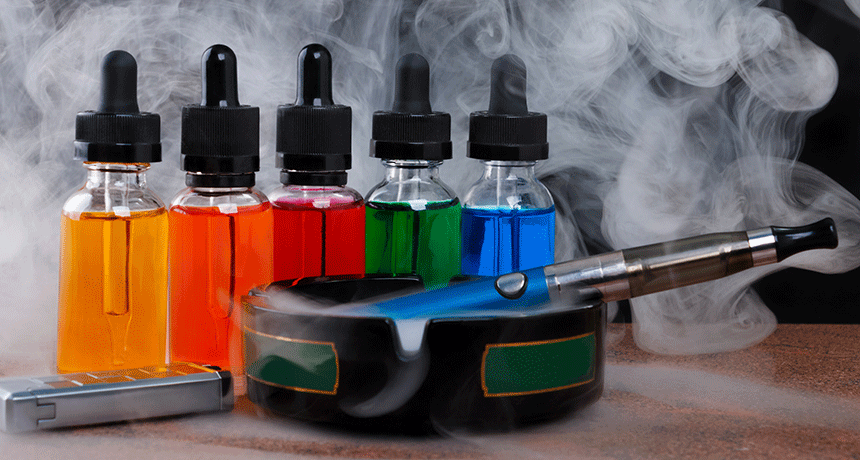Electronic cigarette flavors destroy heart cells
Experiments have shown that liquids in electronic cigarettes sweetened with flavors such as cloves and vanilla may destroy cells in the blood vessels and heart, even without nicotine.
The researchers examined what happens when endothelial cells, which line the arteries, veins and heart, are exposed to popular types of electronic cigarette flavors during laboratory experiments. They tested the effect of different doses and concentrations of nine popular chemical flavors: bananas, butter, cinnamon, cloves, kefirs, mint, strawberries, vanilla and "burnt" taste, which gives a flavor like popcorn or tobacco to food.
The high concentrations of these flavors destroyed the cells during the laboratory test, the researchers wrote in the Journal of (Biology of atherosclerosis, thrombosis and blood vessels). They found that five flavors - vanilla, mint, cinnamon, cloves and burnt fruit - weakened the secretion of nitric oxide, which limits inflammation and clotting, and helps blood vessels expand when blood flow increases.
"The loss of nitric oxide is dangerous, because it is associated with symptoms of heart disease such as heart attacks and strokes," said Jessica Witerman of the University of Boston School of Medicine and lead author of the study. "This is one of the first changes we see in blood vessels before it develops into heart disease, and is an early indicator of toxicity." "Our study suggests that added flavors damage the heart and blood vessels even with the absence of products and other elements that burn (in cigarettes)."
All major US tobacco companies develop electronic cigarettes, battery-powered devices that convert nicotine into liquids and flavors into a vapor cloud that is inhaled. Even when electronic cigarette liquids do not contain nicotine, the lungs remain exposed to chemical flavors when inhaling vapors. Eating many flavors with food is safe, but some previous studies have shown that inhaling vapors from these chemicals may harm the lungs.
In the current study, the researchers examined cells from nine non-smokers, 12 smokers of normal cigarettes, and examined blanket cells from a human heart. Laboratory tests showed a decrease in the ability of cells taken from smokers to excrete nitric oxide even before exposure to chemical flavors. Non-smoker cells weaken their secretion of nitric oxide after exposure to chemical flavors. The study did not explain whether the exposure to chemical flavors is better or worse for human health, compared to nicotine, which also affects the blood vessels and heart.
